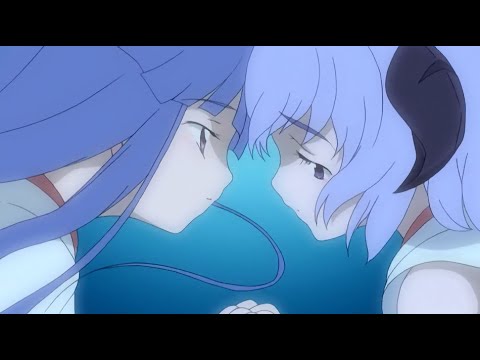For the album, please refer Taishou a / anNina
Taishou a (対象a, Objet petit a)[1] is the ending for the Higurashi no Naku Koro ni Kai anime adaptation. It was performed by anNina and written by interface. Both the composition and arrangement were done by inazawa.
A titular single featuring the full version was released on 22nd August, 2007. The song was later released in a few more compilation albums. The TV size version of Taishou a was included in HIGURASHI NO NAKU KORO NI KAI SOUNDTRACK vol.2 which released on 30th January, 2008.
An alternate arrangement of Taishou a was included in anNina's 2008 EP album, Natal—titled "Taishou a (adonde vuelvo)". A string quartet and piano arrangement of Taishou a was also featured in Higurashi no Naku Koro ni Sou which released on 23rd September, 2016.
Renditions[]
| # | Track Name | Album | Duration |
|---|---|---|---|
| 01 | Taishou a | Taishou a | 4:15 |
| Chords \ bermei.inazawa collection | 4:16 | ||
| Rasmus Faber presents Platina Jazz ~Anime Standards Vol.3~ | 5:23 | ||
| WHEN THEY CRY... THEME SONG COLLECTION | 4:15 | ||
| 02 | Taishou a Instrumental | Taishou a | 4:15 |
| 03 | Taishou a -Short Version- | HIGURASHI NO NAKU KORO NI KAI SOUNDTRACK vol.2 | 1:31 |
| 04 | Taishou a (adonde vuelvo) | Natal | 7:35 |
| 05 | Taishou a [string quartet and piano] | Higurashi: When They Cry Sou | 4:35 |
Video Releases[]
Lyrics[]
| Kanji | Romaji | Translation |
|---|---|---|
あなたの亡骸に |
Anata no nakigara ni |
I throw dirt |
どうして罪が |
Doushite tsumi ga |
I wonder— |
骨の尖は |
Hone no saki wa |
The points of your bones |
| Kanji | Romaji | Translation |
|---|---|---|
あなたの亡骸に |
Anata no nakigara ni |
I throw dirt |
どうして罪が |
Doushite tsumi ga |
I wonder— |
骨の尖は |
Hone no saki wa |
The points of your bones |
あなたの思い出に |
Anata no omoide ni |
I place a lock |
かけらをひろい |
Kakera wo hiroi |
As I picked up and gathered |
罪があるのは |
Tsumi ga aru no wa |
We bear sins |
朝がくれば |
Asa ga kureba |
When morning comes, I wonder— |
Notes[]
- ↑ Taishou a (対象a, Objet petit a) is a term used by French psychoanalyst Jacques Lacan to denote the unattainable "object of desire" or "object-cause of desire". The object in question refers to an imaginary entity that is likened to a void or gap within us that motivates one to desire as well as the tangible object that is being desired—which may temporarily fill that void in vain, attempting to quell the jouissance at its core.
Lacan always insisted that the term should remain untranslated, "thus acquiring the status of an algebraic sign". The "a" in question stands for "autre" (other), the concept having been developed out of the Freudian "object" and Lacan's own exploitation of "otherness". The concept of the Objet petit a has been redefined and evolved over time throughout the course of Lacan's works and seminars.
Trivia[]
- The lyrics and themes in the song are reminiscent of the Greek tragedy Antigone, in which the eponymous protagonist Antigone attempts to secure a respectable funeral for her brother who had fallen in battle. Despite the newly-issued royal decree forbidding her brother's mourning, Antigone buries her brother's body herself and is sentenced to death as a result.
- Lacan himself cites Antigone as exemplar of Objet petit a.
External Links[]
Translation: Meera Malhotra
| |||||||||||||||||||||||

